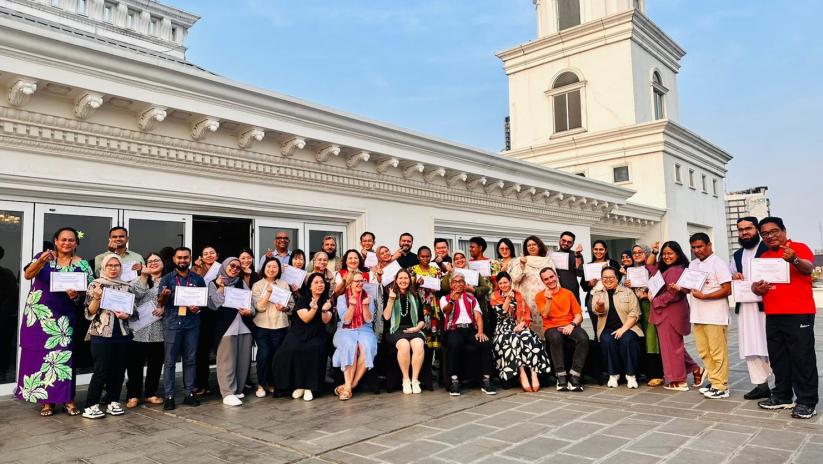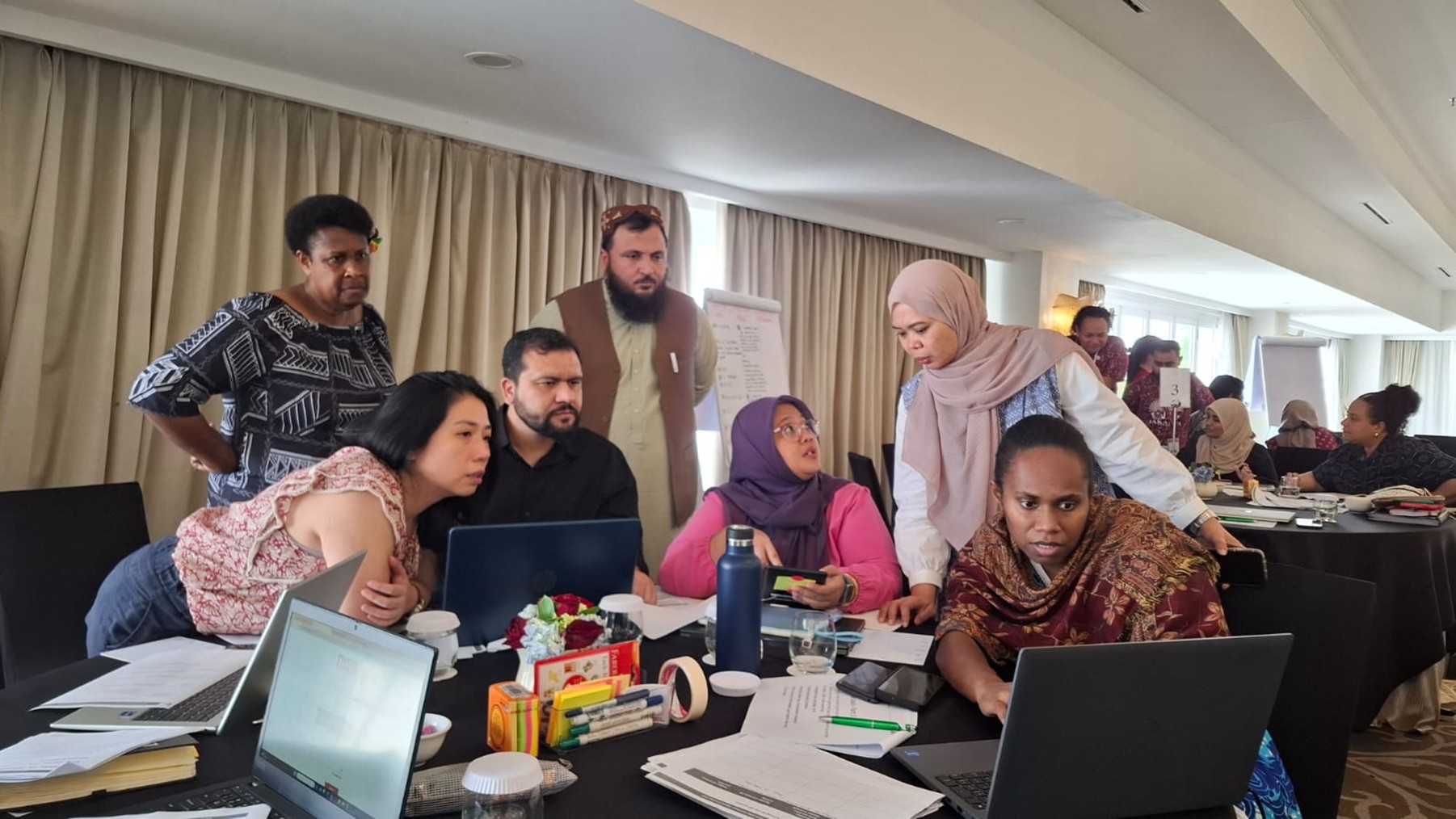
The training brought together 29 participants from 19 National Societies across the region to strengthen capacity for community-based early detection and rapid response to health threats. Facilitators included experts from Norwegian Red Cross, Australian Red Cross, Hong Kong Red Cross (Branch of the Red Cross Society of China), Danish Red Cross, IFRC Asia Pacific Regional Office, IFRC Country Cluster Delegation in Jakarta, and the Indonesian Red Cross.

Through interactive discussions, scenario-based exercises, and case studies, participants enhanced their understanding of CBS design, implementation, and its role in public health emergencies. The sessions focused on equipping IFRC and National Society focal points with the skills to lead CBS assessments, develop operational protocols, train volunteers, select and analyse data management tools, and adapt CBS systems during emergencies.
As part of the training, National Societies including Bangladesh, Fiji, Indonesia, Mongolia, and Vanuatu shared their lessons learned and country experiences in implementing CBS—highlighting successes, challenges, and innovations in surveillance integration, digital tools, and volunteer engagement.
The event marked an important milestone in advancing community-based surveillance and regional health security preparedness across the Asia Pacific region, fostering stronger collaboration and peer learning within the Red Cross Red Crescent Movement.



